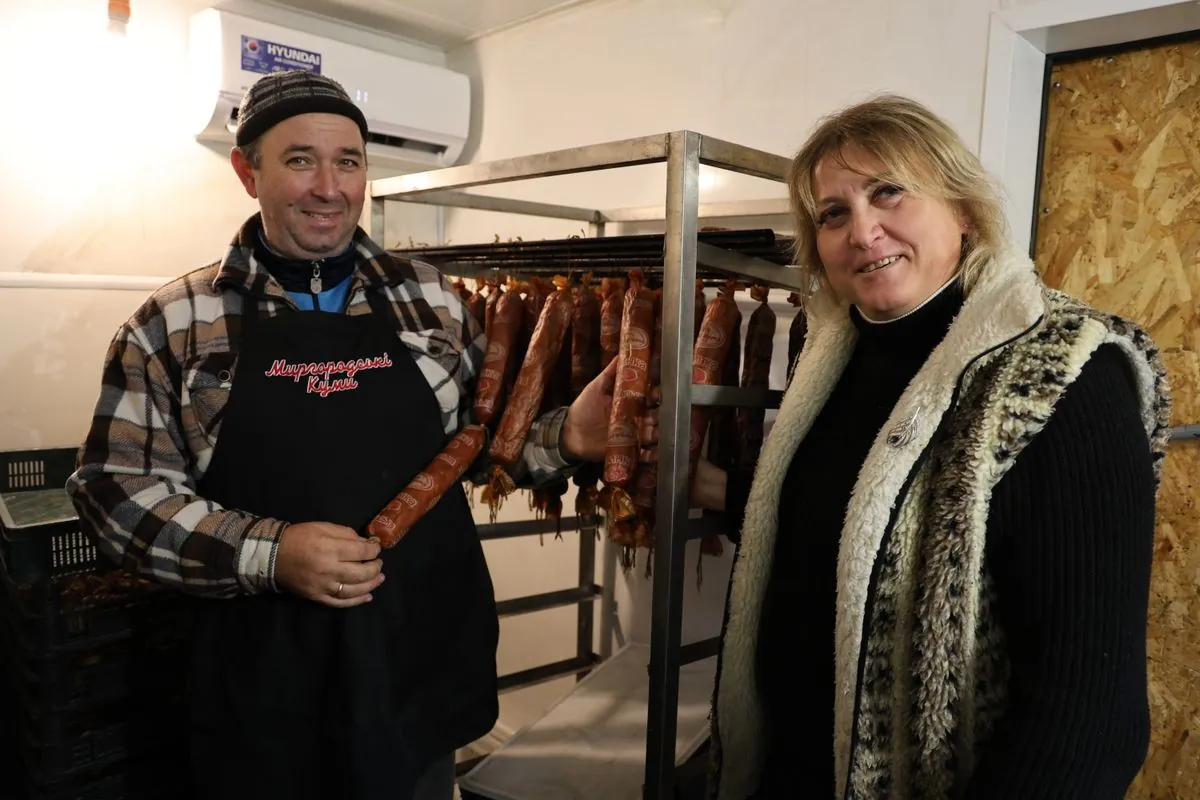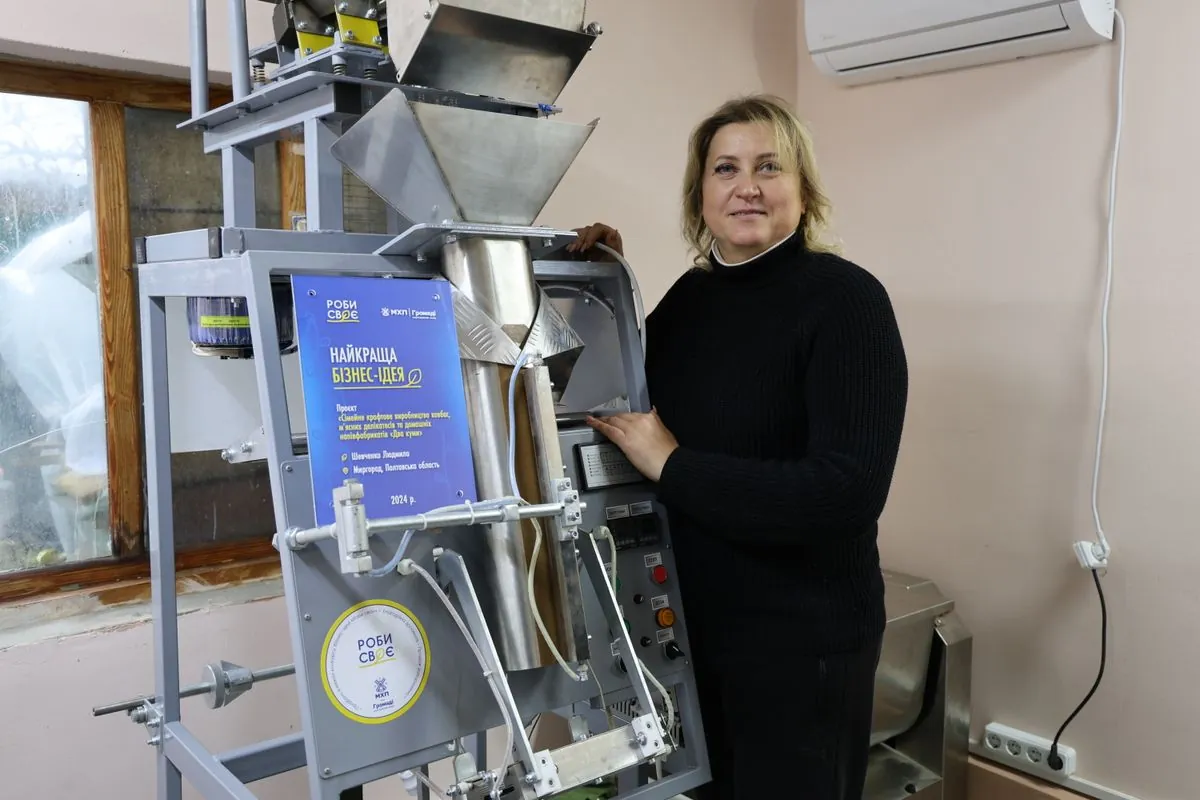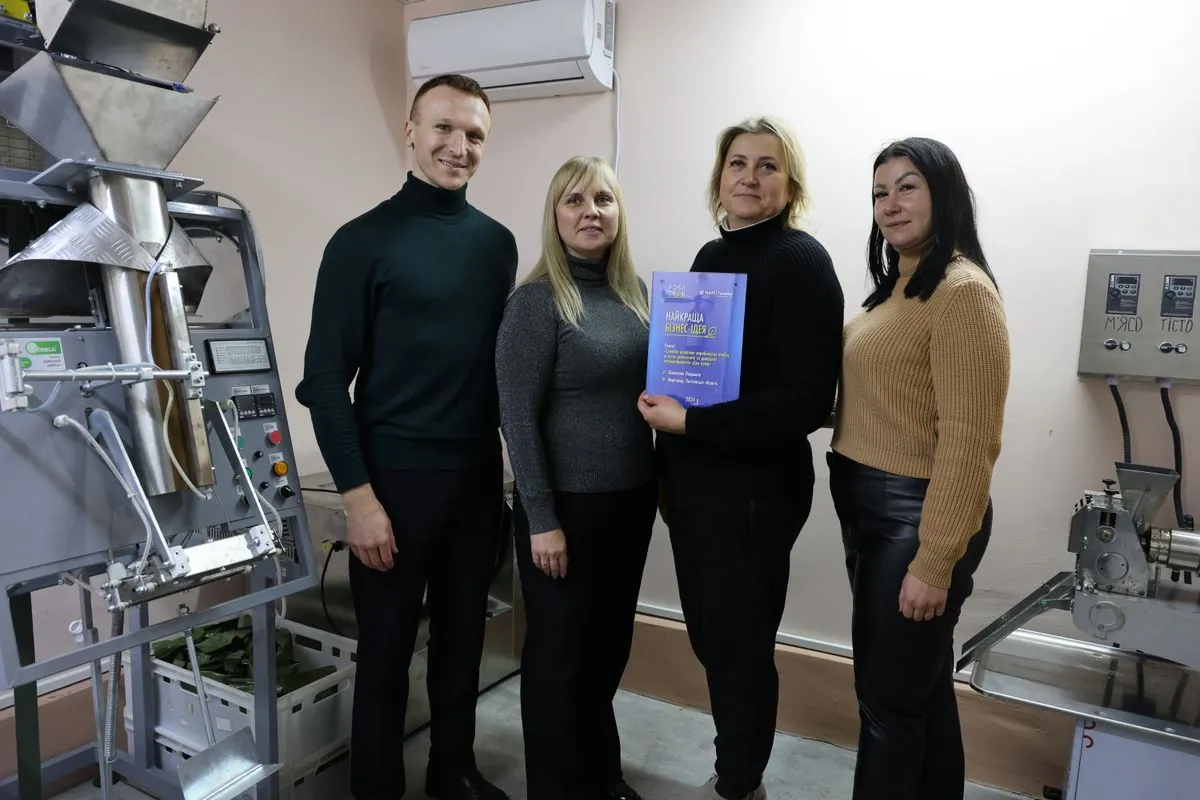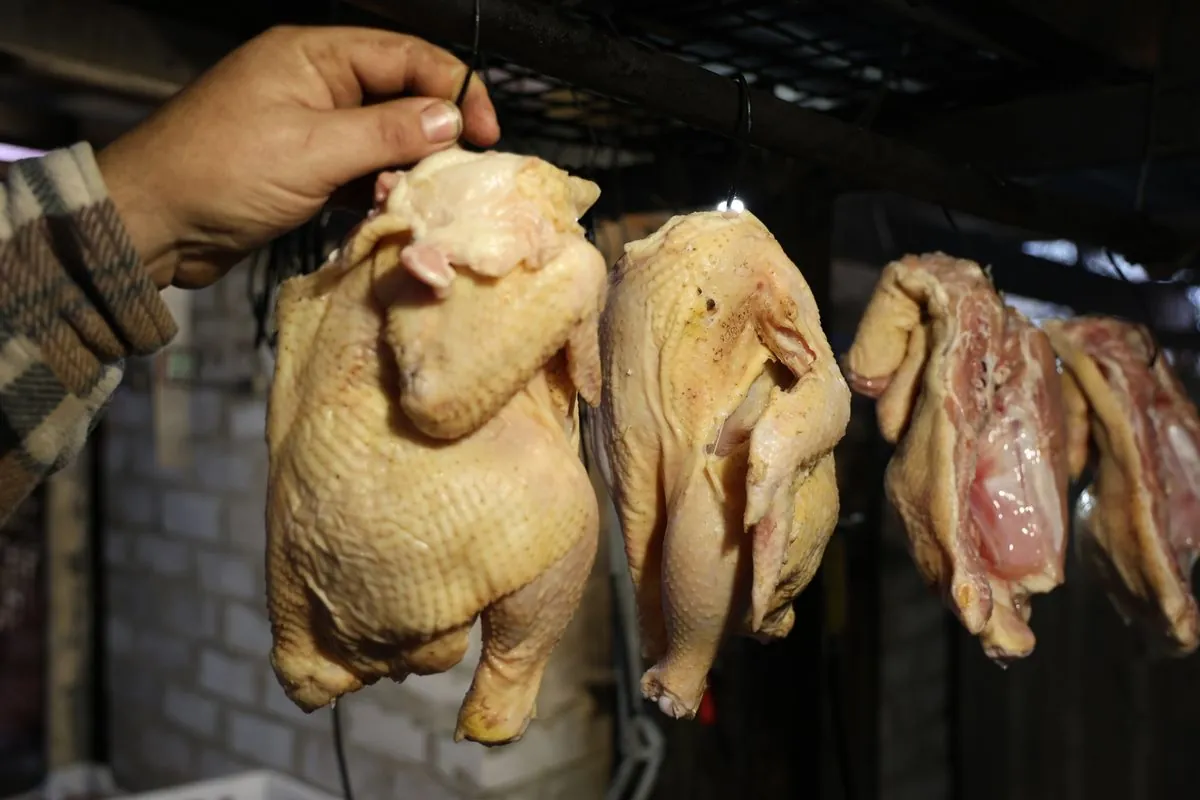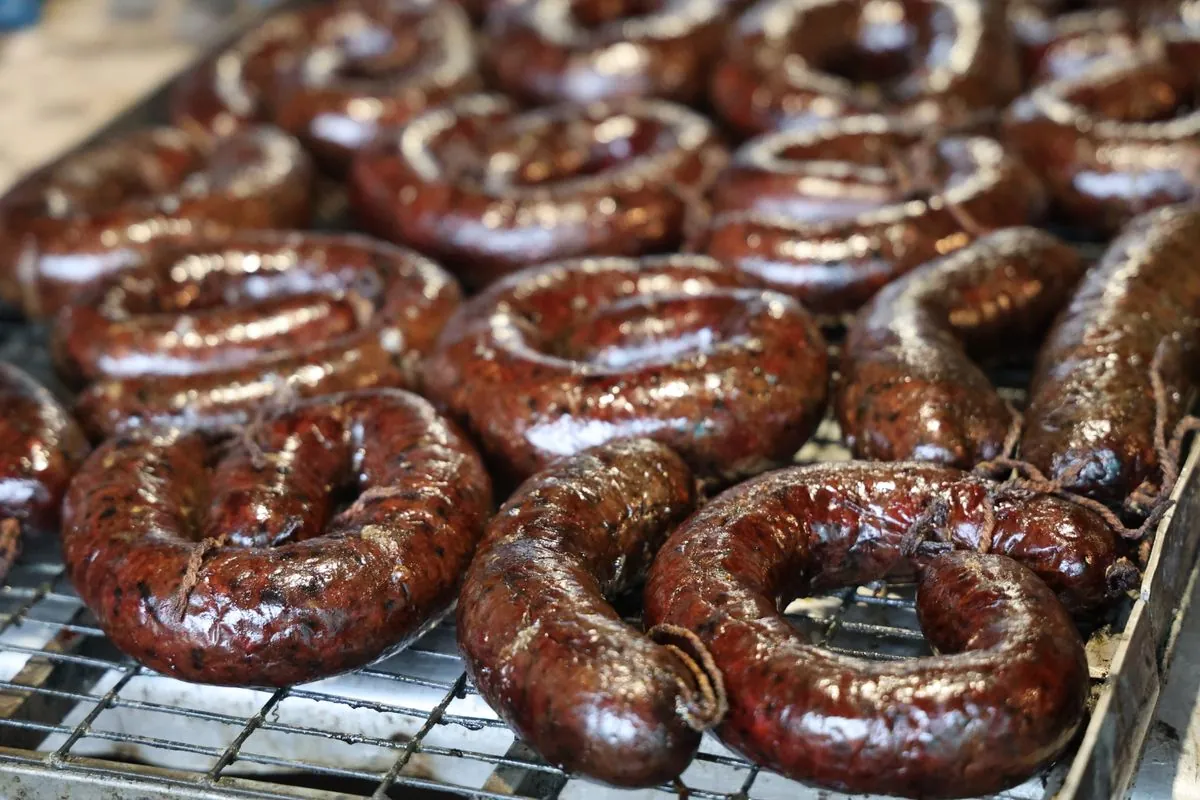20 types of smoked author's sausages: winners of the “Do Your Own” contest in Poltava region scale up their business
Kyiv • UNN
Dva Kuma, a family-owned business from Poltava region, has won a grant from MHP-Hromada and expanded its production of meat delicacies. The company produces more than 20 types of specialty smoked sausages and other meat products.

More than 10 years ago, Liudmyla Shevchenko, together with her husband and godfather, founded the Dva Kuma trademark. Since they had been raising pigs at home for a long time, they decided to create a meat processing business as a large, close-knit family. When the war broke out, they did not close the business, but rather expanded production and took an educational course from Diia. Business program. The last grant they won was from the MHP-Hromada Charitable Foundation. The project “Family craft production of sausages, meat delicacies and homemade semi-finished products ‘Dva Kuma’ won the competition of business ideas ‘Do your own’ from ‘MHP-Gromada’, reports UNN.
Since the beginning of the war, we have won grants in 4 projects, and used the money to purchase equipment, including equipment for making dumplings and pelmeni. Since our sausages are whole-bite sausages, like ham, we decided that the excess minced meat could be used to make dumplings and dumplings. With a grant of UAH 100,000 from “Do Your Own”, we purchased a packaging machine to speed up the packaging and make it better
She also said that all of the recipes for their sausages, stews, dumplings, dumplings, etc. are original. Dva Kumi's assortment includes more than 20 types of author's smoked sausages, 10 types of baked and smoked-boiled sausages, 8 types of lard, 5 types of offal delicacies, etc. The war forced the team to expand the range and work with an autoclave to make stews for the military at the front line, because each of the production workers has someone at the front.
“During the war, we created a fish sausage called 'Russian warship, go'. Now it's called 'Fish' and is loved by those who like fish delicacies. We also have Moscow is Burning, which is equally popular among our guests. We work with chicken, beef, and pork,” she says
Liudmyla is an engineer by education, but to become more professional in her business, she entered Poltava State Agrarian University at the age of 49 to study food technology. She is convinced that the growth of sausage and deli meat production can be an additional incentive for the development of agriculture in their region and will create even greater demand for meat products.
According to Oleksandr Pakholyuk, director of the MHP-Hromada Charitable Foundation, such projects are about people who know how to work, who care about their community and do not give up when things get tough.
“I am sincerely happy when our business idea competition is won by those entrepreneurs who know the value of work, who are involved in their own business with their whole families, who are strongly united by common values, including staying in their village or town and doing everything to make not only them but also those around them want to live here,” Pakholyuk said.
The “Do Your Own” business idea competition from the MHP-Community Foundation aims to support micro-entrepreneurship in small towns and villages of Ukraine. This year, independent experts selected 80 winning projects from among 616 applications from 15 regions of Ukraine. The cost of one grant is up to UAH 100 thousand. About UAH 10 million, including fees and taxes, has been allocated for the implementation of all business ideas.
“MHP-Hromadas is a Ukrainian charitable foundation that started its operations in 2015. Its main mission is the comprehensive development of communities. The geography of its activities includes 13 regions of Ukraine: more than 700 towns and villages. Since the beginning of Russia's full-scale invasion of Ukraine, the Foundation has been systematically supporting people in the war zone, Ukrainian defenders and rescuers, communities, hospitals and maternity homes, charitable institutions that care for orphans and the elderly, as well as people who have lost their homes and livelihoods due to the war.
